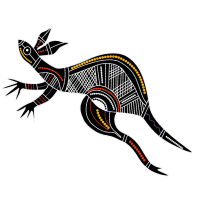READ NEXT
Empowering Indigenous Knowledge and advancing IP systems
Explore ways the IP system can better support Aboriginal and Torres Strait Islander people.

Scam warning
A new email scam has been circulating, which impersonates registered IP attorneys and pressures applicants into filing a trade mark. Exercise caution if you receive an unexpected email about IP rights. Read more: Scams relating to IP rights
Recognising where Indigenous Knowledge may impact the intellectual property elements of your idea will help you seek the right information when developing your application.
Trade marks are used to distinguish your goods and services from another trader. Trade marks can include a logo, phrase, word, letter, colour, sound, smell, picture, movement or aspect of packaging, or a combination of these things.
Indigenous language, words or imagery may form part of your trade mark.
A patent protects any device, substance, method or process that's new, inventive and useful.
This may include using traditional knowledge of plants or ecology to develop distinct strains of flora or invent a new foodstuff or pharmaceutical.
A design right protects the visual appearance of a product that has a physical and tangible form, can be manufactured or handmade, and is produced on a commercial scale.
This could include a piece of furniture, textiles or clothing that incorporates Indigenous designs or crafting processes.
Plant breeder’s rights protect new plant varieties. This could include using traditional knowledge of native plants to develop a new plant variety.
There are also unregistered rights which we aren't responsible for, including copyright and trade secrets.
Copyright Council works to help support you and your unregistered creative rights in Australia.
Visit Copyright Council
Indigenous Knowledge adds a unique and valuable dimension to products and services, attracting customers who appreciate cultural heritage, authenticity, and innovation.
How to commercialise my IP
Collaboration between Indigenous communities with Indigenous and non-indigenous businesses opens doors to innovative joint ventures, leading to the development of novel products and services.
Commercialisation and collaboration
Discover the inspiring collaboration journey between Marc from Alperstein Designs and artist Mick, exploring Indigenous Knowledge in commercialisation, ethical licensing, and IP protection.
IP and collaborations
As Aboriginal and Torres Strait Islander businesses increasingly engage with international markets, particularly in sectors like bushfoods, fashion, and sustainable agriculture, the export of products raises important considerations around IP protection and Indigenous Knowledge.
Exporting products or services that include Indigenous Knowledge – such as native botanicals, or cultural designs – requires careful navigation of IP rights in Australia and overseas. Export involving Indigenous Knowledge is not just about commercialisation – it’s also an opportunity for Aboriginal and Torres Strait Islander peoples to engage with global markets on their own terms and retain control over their culture.
International IP registration and protection can be complex. We recommend you seek advice from an IP professional to discuss your specific circumstances.
Learn more about International IP
We're continuing to develop our IP system to help support the cultural integrity and economic potential of Indigenous Knowledge held by Aboriginal and Torres Strait Islander people.

Our trademark examiners are actively working to carefully consider applications related to the use of Indigenous Knowledge. Many of our Indigenous Knowledge specialist team members are Aboriginal and Torres Strait Islander individuals. All our IP rights examiners receive cultural training, ensuring they can sensitively address Indigenous Knowledge related matters with customers.
We know there's more work to do and we’re taking steps to ensure Aboriginal and Torres Strait Islander voices and perspectives remain central to this work.
We can help guide you through the IP journey. We have additional resources to support and develop your IP knowledge as you take the steps to grow your business from idea to commercialisation.
We have the expertise and support to guide Indigenous and non-indigenous businesses through the process to apply and register protection of their product or services in line with Australian IP law.